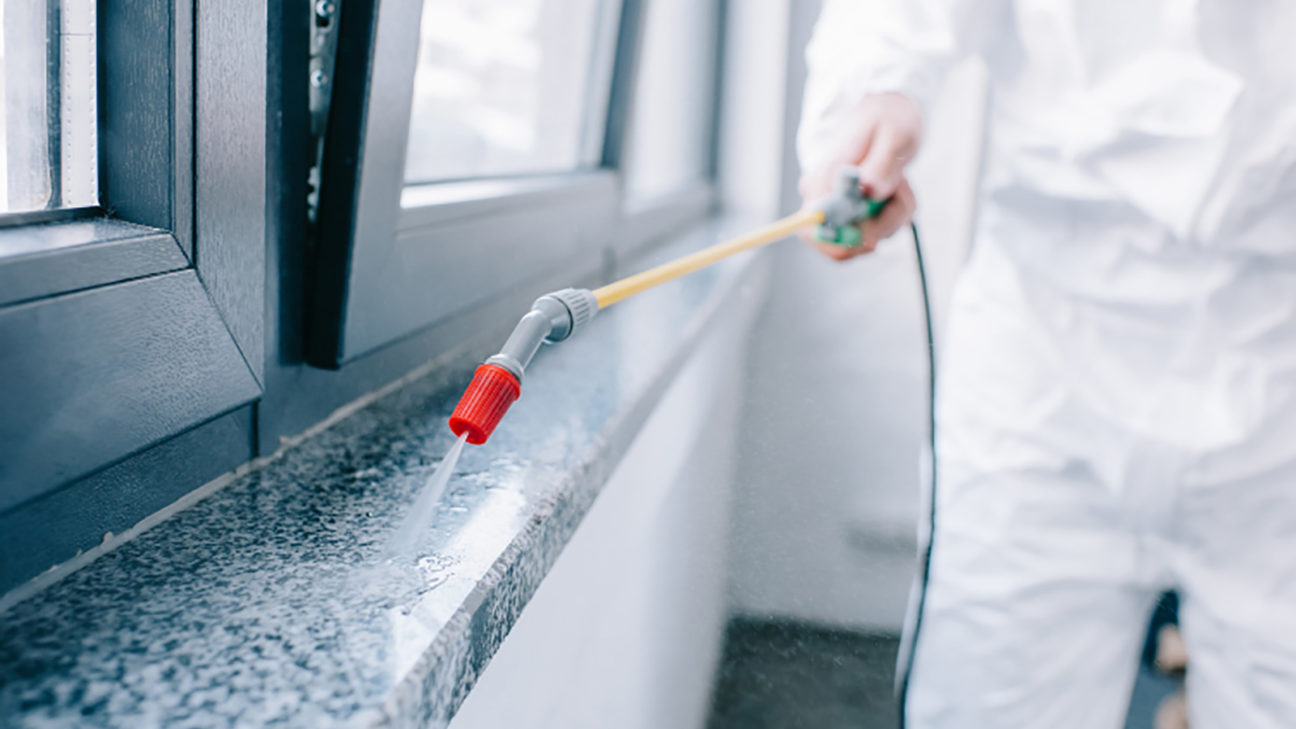9 steps to starting a pest control business

Key takeaways
- Limit your liability as a pest control business by operating as a corporation or LLC
- Pest control companies must obtain business licenses to handle commercial-grade pest control supplies
- Establish your online presence and invest in digital ads to gain leads and customers
From bed bugs and termites to cockroaches and rats, pests can be a problem wherever you go. And with climate change potentially accelerating pest populations, it’s no surprise that the U.S. pest control market is expected to exceed $28 billion by 2026. Many consumers will do whatever it takes to prevent or get rid of infestations, which is why starting a pest control business could be a lucrative opportunity for you. Here are nine steps to get started.
1. Choose your business name
Every company needs a unique business name to stand out from competitors and tell customers a little about who they are.
When starting a pest control business, choose a brand name that’s creative and compelling while also hinting at what services you provide. For example, you may want to include the phrase “pest control” or “exterminator” in your name. Or, if you specialize in combating certain types of pests, consider specifying that with a phrase like “termite control.”
Once you’ve brainstormed at least one name, see if it’s legally available. No two businesses that offer similar services can hold the same name if the name is trademarked or if they’re in the same state. Search your desired name on:
- The U.S. Patent and Trademark Office database
- The website of your state agency that handles business formations (Secretary of State, Department of Commerce, etc.)
For branding purposes, also check the availability of your business name as a social media username and domain name (aka website name). You can use sites like Name.com or GoDaddy to search domains.
2. Choose your business structure
Another key step in starting a pest control business is choosing a legal structure for your business. For example, you can operate as a limited liability company (LLC), an S corporation, or a C corporation. Your taxes, liabilities, and level of required paperwork will be dependent on the legal structure you choose.
Operating as a sole proprietorship or partnership is not recommended for pest control businesses. These legal structures would leave you personally liable for claims against your company—putting your own assets at risk—in an industry that involves handling toxic pest control chemicals, entering clients’ homes, and taking care of existing damage.
3. Register your pest control business

Once you know your ideal business name and business structure, you can register your business and legally form your company. You can get the paperwork from your state agency’s website or office, or simply complete the registration process online.
Depending on your state and the type of business structure you choose, registration usually costs no more than $200.
In addition to registering your business, don’t forget to apply for an employer identification number (EIN) with the IRS if you’ll be hiring employees or operating as a corporation or partnership.
4. Obtain pest control licenses
All pest control companies also need to obtain the proper business licenses from their state—and often their counties and cities too—before they can start offering pest control services and handling commercial-grade pesticides. You may need to wait until your registration is approved to start this step. Some states also require pest control business owners to have worker’s compensation insurance.
If you’ll be performing the pest control yourself, you’ll need additional pest control licenses to do so. These licenses have more extensive requirements, like education (often 12–25 hours of courses), 1-2 years of prior experience, and exams. An exam can cost anywhere from $5–$300 (usually under $75), and multiple exams may be required, depending on what services you want to offer.
Ask your state agency if there are any general business licenses you need as well.
5. Open a business bank account
All LLCs and corporations need to have a separate business bank account. Even if it weren’t required, it’s good practice. Separating your business and personal finances is a good way to keep your books properly balanced and file taxes quickly. It’ll also help you access loans, business credit cards, and other forms of financing if you need them.
6. Create an expense plan
Starting a pest control business isn’t a cost-free venture. Make a list of all of your expected startup costs, which may include:
- Pesticides, baits, and traps
- Sprayers and foggers
- Personal protective equipment (respirators, goggles, gloves, etc.)
- General tools (flashlights, sealants, ladders, etc.)
- First aid kits
- Company trucks or vans
- Auto, worker’s comp, and liability insurance
- Employee salaries and wages
- Contractor payments
With your startup expenses in mind, you can determine how you will initially finance your small business. You may have enough cash in your savings or you may need to crowdfund or borrow from lenders. Having a list of expenses will also help you determine and solidify the prices of your services to ensure you can make a profit.
7. Set up your online presence
Building an online presence is an essential first step for marketing your business. To get your first leads and customers, you need to show up where they’re searching for pest control companies like yours. First, claim your domain name and create a professional website.
Then claim your Yelp Business Page. For pest control businesses, Yelp can be a key source of high-quality leads who are actively in need of your services. As many as 97% of users make a purchase after visiting the platform. Once you’ve claimed your Yelp Page, you can start updating your business information and uploading images of your team in action.
You’ll also want to create social media profiles on the platforms that your homeowners or commercial property owners are using, like Facebook and LinkedIn.
8. Build your marketing and advertising strategy
Simply having an online presence isn’t enough. For your new business to stand out, you need to create a marketing strategy with your target audience’s needs in mind. Identify what messages would appeal to your ideal customer. Figure out where they spend their time. For example, you could reach a residential pest control client by posting on Nextdoor or handing out business cards at a local home and garden show. You could also ask your network of friends, family, and acquaintances for referrals and offer incentives like gift cards in exchange.
Ahead of your launch, amplify your pest control marketing with online advertising. Online ads—including social media, search engine, and Yelp Ads—can help multiply your reach, specifically to members of your target audience. The best part is you can set your own budget so you never overspend.
9. Prioritize client management
Running your own pest control business requires you to manage your client relationships wisely.
Start with the logistics. Create processes and invest in tools that help you streamline your operations and avoid issues that could lead to poor client experiences (double booking, low pesticide supply, etc.).
Then figure out when and where you’ll be available to communicate with your clients. Don’t overextend yourself. You don’t want ringing phones, incoming emails, and messages from all your social channels around the clock if you’re a one-person show. If you do have a team, make sure they’re trained to provide the best support possible on each channel.
Preparing contracts, documents, and quotes can also help you create smooth client experiences that are worthy of 5-star reviews on Yelp. It’s all about finding ways to get rid of clients’ pest problems quickly instead of adding new problems to their already stressful situation.
Starting a pest control business can be a reality
A pest control service can be a lucrative business idea no matter where in the U.S. you live. To turn your idea into a successful business, you need to know how to meet legal requirements, keep your finances in check, and build a solid online presence over time. Get more insight into developing a pest control company by learning how to write a business plan.
The information above is provided for educational and informational purposes only. It is not intended to be a substitute for professional advice and may not be suitable for your circumstances. Unless stated otherwise, references to third-party links, services, or products do not constitute endorsement by Yelp.




